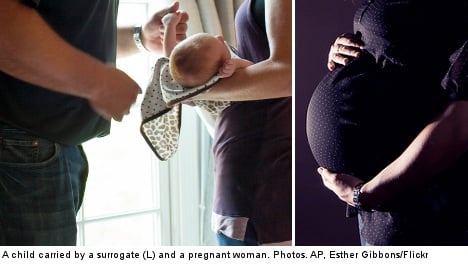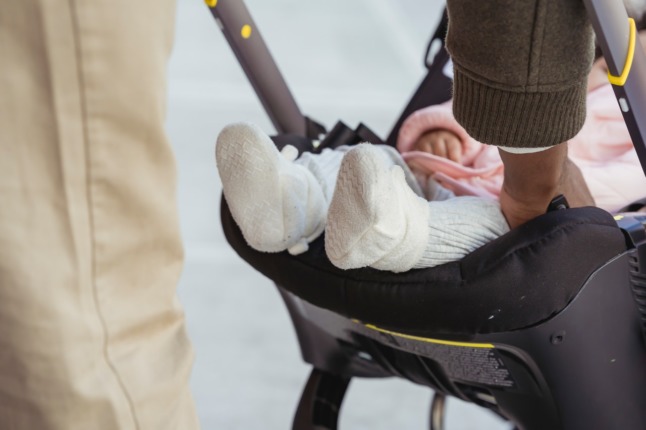Sweden’s medical ethics council (Statens medicinsk-etiska råd, Smer) wants to allow surrogate motherhood, but in our view its report leaves too many questions unanswered.
Our organizations think that all types of trade in women’s bodies and children should be prohibited.
Surrogate motherhood is a serious crime against women’s human rights.
To become pregnant and to give birth are among the most dangerous things a fertile woman can go through. Apart from the mortality risk, women can end up suffering preeclamsia, Graves’ disease, depression, blood clots, or incontinence, among other serious ailments.
It is impossible to predict what the physical and mental effects of a pregnancy will be.
New research within epigenetics also shows that the child in a woman’s belly is affected by her, even if they are not genetically related. If a surrogate suffers high blood pressure during the pregnancy, the child will run a high risk of developing cardiovascular problems as an adult.
A pregnant woman will never simply be a container. She will affect the child she carries, regardless of who provided the egg and the sperm.
Surrogate motherhood is a commercial contract. It means negotiating away the right to your body, as well as the care of, and contact with, the child.
The people who ordered the pregnancy and the clinic will often exercise full control over how the woman lives during the pregnancy.
This is true both for commercial and so called “altruistic” surrogate motherhood.
The medical ethics council leaves many questions unanswered in its recommendation.
What are the legal consequences if a contract is entered into between sisters or friends?
If that sister or that friend runs into complications during the birth, if the surrogate mother has to have a Caesarean that risks her chance of future pregnancies, if the child is born with a disability – who will pay for the after care for mother and child?
Who is legally obliged to deal with the consequences?
Even when a woman carries a child for a close friend or relative without remuneration there is a contract between them. There is no way to monitor the social dynamics between a person or a couple that is yearning for a child and the woman whom they ask to carry it for them.
We have seen, for example, that in England, where altruistic surrogacy is allowed, there is no way to make sure pressure is not applied on the would-be surrogate to accept the request – in terms of gifts, money or other types of persuasion.
Who is to determine whether a friendship is healthy and whether the parties in it are equals?
Even when the woman has voluntarily become a surrogate, the fact remains that she gives up the rights to her own body.
Yet another question that the council doesn’t answer is the link between commercial and altruistic surrogate motherhood.
Research shows that demand for international “baby factories” goes up in countries that allow altruistic surrogacy. In other words, when a new phenomenon becomes the accepted order of things and demand goes up, the commercial trade in women’s bodies in poorer parts of the world also increases.
Regardless of how surrogacy is regulated, it opens the door for viewing women and children as goods, and to regarding women as containers.
Overall, the global trade in living organic matter – women and children – has not been examined properly.
The Swedish Women Doctors Association and the Swedish Women’s Lobby are therefore against allowing surrogacy in Sweden.
We refer to the UN’s Declaration of Human Rights as well as the convention on women’s rights in taking this stance. It states that nation states should guarantee women’s rights to their own bodies and actively work against all trade of women.
We also support the European Parliament’s resolution from 2012 that establishes that surrogacy is a serious problem that exploits women’s bodies and their reproductive organs.
Surrogacy is an expression of one of the oldest patriarchal thoughts that exists in the world – that a woman is expected to make herself available and that the female body is a tool to be used by others.
It is regrettable that some people who want children cannot have them. Yet regardless of how strong that longing is, having children is not a human right.
The limits we should place on the desire to have children should be drawn at the trade in human bodies.
That Sweden would legalize the trafficking of women and children is unacceptable.
Mia Fahlén, Swedish Medical Women’s Association
Gertrud Åström, Swedish Women’s Lobby

This article was originally published in Swedish in the Svenska Dagbladet (SvD) newspaper. English translation by The Local.



 Please whitelist us to continue reading.
Please whitelist us to continue reading.
Member comments